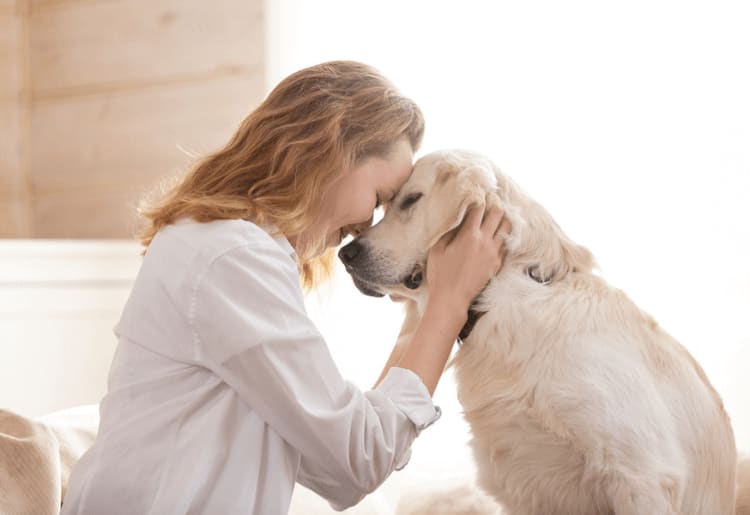
Best Pet Insurance for Older Dogs of 2026
Dogs can bring so much joy to our lives, even when they enter their golden years.
Read MoreJust like humans, pets may develop dental issues, such as broken teeth, abscesses, and gum disease.
June 12, 2025
That’s where pet dental insurance comes in. With coverage from one of our best pet insurance companies, you can offset the cost of out-of-pocket dental bills and ensure your furry friend achieves optimal oral health. Here’s what you need to know about pet dental insurance.
Pet insurance coverage varies by insurance company. In general, however, it falls into three categories:
Typically, most pet insurers will reimburse you for dental accidents like broken or chipped teeth. However, with dental illnesses like gingivitis and gum disease, coverage is less common. You’ll have to shop around to find an insurance company that includes dental illnesses in its policies.
Also, regular teeth cleanings and other preventive care services are usually excluded from accident-only and accident and illness plans. To receive coverage for routine dental work, you’ll likely need to invest in a pet wellness plan, which is usually an add-on or rider.
"Every pet insurance plan is different, but extractions of diseased or injured teeth are a primary reason for pet parents to make dental claims," says Dr. Rebecca Greenstein, veterinarian at Rover. Some policies also provide coverage for more advanced or specialist procedures, such as:
“Wellness plans often focus on pet preventative care, so many will cover routine cleanings and/or dental X-rays. However, any additional diagnostics or treatments like extractions are outside the plan,” explains Dr. Greenstein.
Most wellness policies cap reimbursements for dental cleanings. Some companies, like Embrace, also cover dental maintenance items such as chews, oral rinses, toothbrushes, and toothpaste.
Before you move forward with a pet insurance policy, make sure you understand which dental services are covered. Otherwise, you may be forced to pay hefty out-of-pocket costs for dental accidents, illnesses, and routine services.
Here’s a look at how the leading pet insurance companies include dental care in their coverage options:
| Insurer | Accident & Illness Coverage | Routine Care Coverage |
|---|---|---|
| ASPCA Pet Health | Dental treatments for accidents and illnesses as part of the accident and illness policy | Dental cleanings as part of Basic or Prime Preventative Care Coverage |
| CarePlus by Chewy | Dental diseases as part of the accident and illness policy | Dental cleanings as part of the wellness plan from Lemonade and Trupanion |
| Embrace | Up to $1,000 per year for broken, chipped, or fractured teeth, gingivitis, and periodontal disease | Dental cleanings as part of Wellness Rewards |
| Fetch | Dental treatments for injuries and diseases in all adult teeth, not just the canines like most pet insurers | Dental cleanings as part of Fetch Wellness |
| Figo | Dental treatments for accidents and illnesses as part of the accident and illness policy | Dental cleanings as part of the Base or Plus Wellness Powerup |
| Lemonade | Dental accidents as part of the accident and illness policy | Up to $150 in dental cleanings as part of the Preventative+ Care plan |
| MetLife | Dental treatments for accidents and illnesses as part of the accident and illness policy | Dental cleanings as part of the Preventative Care add-on |
| Pets Best | Dental treatments for accidents and illnesses as part of the accident and illness policy | Dental cleanings as part of BestWellness™ |
| Pumpkin | Tooth extractions for dental injuries as part of the accident and illness policy | Dental cleanings as part of the Wellness Club, subscription-based wellness plan |
| Spot | Dental illnesses and tooth extractions related to dental accidents as part of the accident and illness policy | Dental cleanings as part of the Gold or Platinum wellness plan |
Pet dental insurance can be a smart investment for your furry friend's oral health. It helps manage veterinary costs while ensuring your pet gets necessary dental care.
You can choose accident-and-illness coverage for pet emergencies or add wellness plans for routine cleanings. Compare options from leading insurers to find the plan that fits your pet's needs and budget.
Is pet dental insurance worth it?
Yes, in many cases, pet dental insurance is worthwhile. It can motivate you to take care of your pet's oral health and reduce the risk of costly vet bills related to dental accidents, illnesses, and wellness services.
Is there pet insurance that covers dental?
Yes, many pet insurance companies help pay for dental care, including ASPCA Pet Health, CarePlus by Chewy, Embrace, Fetch, Figo, Lemonade, MetLife, Pets Best, Pumpkin, and Spot.

Dogs can bring so much joy to our lives, even when they enter their golden years.
Read More
Every pet owner has unique budget and coverage needs.
Read More
Accident-only pet insurance protects against unexpected injuries at a fraction of comprehensive plans. It's an affordable safety net for major accidents that could otherwise cost thousands in vet bills.
Read MoreAnna Baluch is an insurance and finance expert at BestMoney.com. She has written for Forbes, Newsweek, Credit Karma, CNN, and many other top publications. Drawing on her in-depth industry knowledge, Anna enjoys helping individuals and small business owners make smart financial decisions.